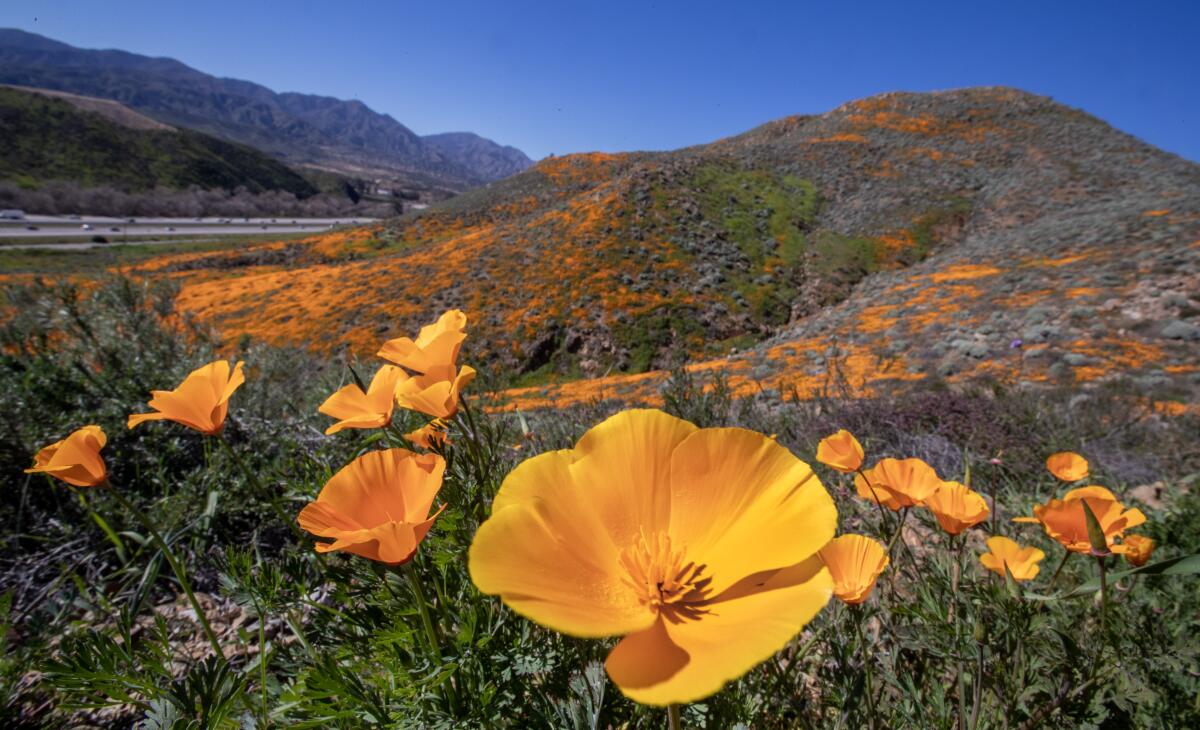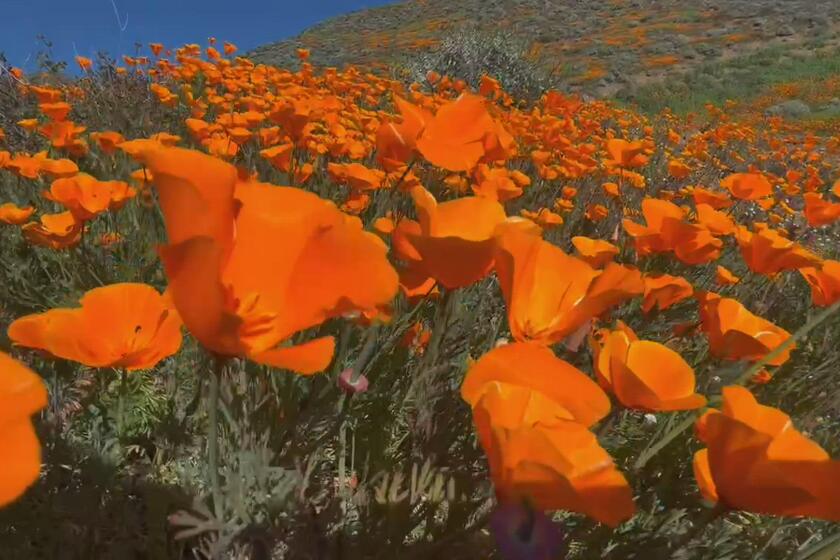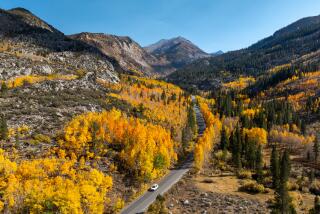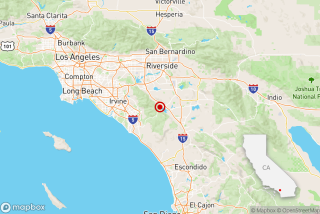Bracing for ‘superbloom’ chasers, Lake Elsinore closes road to popular hiking trail

The first smatterings of golden poppies have begun to appear on the hillsides of Lake Elsinore, and local officials are bracing for the onslaught of traffic and ecotourists who are soon to follow and marvel at what could be a “superbloom” of wildflowers.
In 2019, the quiet city in Riverside County saw thousands of people drive into town to take in the bursts of color. And the results were chaotic, according to city officials.
A record series of California storms starting in late December have raised the hope for a robust superbloom season in Southern California, which attracts people from across the region to experience the fleeting natural display of vibrant wildflowers.
In preparation for the arrival of the crowds that will swarm the hiking trails, the city of Lake Elsinore has closed Walker Canyon Road and posted no-parking signs on nearby streets. Officers will be patrolling the areas and issuing citations, officials said.
Photos: Don’t come. You could be arrested | Lake Elsinore closes access to latest poppy ‘superbloom’
The poppies are beginning to bloom but so far on a small scale — and the canyon where they grow and parking areas are now completely off-limits.
Flower lovers swarmed the trails of Lake Elsinore in February 2019, when thousands of bright orange poppies blanketed the landscape, providing an Instagram-worthy panorama for people to take in. But the nearby roads and Interstate 15 were gummed up by traffic as tourists traipsed around the poppies and looked for parking.
An overwhelming flood of guests strained the area with “Disneyland size crowds,” according to local officials, who declared a #PoppyNightmare on their social media channels. Residents were advised to stay off the local roads and avoid Walker Canyon. Shuttles that were meant to bring guests to the fields were stuck in traffic, and some people parked their cars on the highway, according to officials.
One couple landed a helicopter in a poppy field in the Antelope Valley California Poppy Reserve, drawing an exasperated response from state officials.
It’s still unclear whether this year will yield the same vivid display of wildflowers.
Guests should be mindful of their surroundings and their literal footprints, said research ecologist Daniel Winkler of the U.S. Geological Survey’s Southwest Biological Science Center.
“Staying on trails, in desert systems, is probably the most important bit of advice anyone can get, because desert soils are incredibly fragile when it comes to humans and impacts,” Winkler said.
More to Read
Sign up for Essential California
The most important California stories and recommendations in your inbox every morning.
You may occasionally receive promotional content from the Los Angeles Times.












